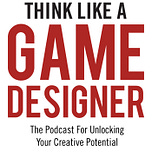About Matt Fantastic
Matt is easily the most punk rock game designer I’ve ever interviewed, and it’s no wonder because their professional life is rooted in collectivism, art, nerdery, social justice, and DIY punk rock. He is the Creative Director of Forever Stoked Creative, a studio they founded over a decade ago. Matt also owns Elm City Games, a game shop/library in New Haven, Connecticut. They founded the New Haven Game Makers Guild, organized Fantasticon, and do consulting across the game industry as well as for corporate, NGO, and institutional clients like Netflix and Yale. In this episode, we discuss the world of indy games and have a fantastic time!
Show Notes:
“Indy in music is … an ethos, an attitude; it’s a scene that you might be a part of … In games, indy is almost interchangeable with not successful … or not as successful as someone would like to be.”
There are an infinite number of games that designers can create and an infinite number of reasons someone might want to create a game. Matt and I discuss the attitude of creating and building, following your passion for a design, and not just following a process or a trend. We follow up by talking about the luck, opportunities, and tenacity it takes to create a game, especially when there’s little financial reward.
“Who do you want to work with? Who do you want to have to be in meetings with regularly? Who do you think is going to be fun or enjoyable to interact with?”
As you’ll hear, most of this episode is philosophical and sociological, and the conversation shifts from games to music, family, and travel. We discuss working with different collaborators, bosses, and companies and how that applies to your overall enjoyment of life and working toward a career in games.
“I think the best designers are the most empathetic.”
Here, we try to deconstruct the idea that game design is all about being the smartest person in the room. The most important game design principle is that player experience matters more than anything else. The ability to understand the players' experience is at the process's core. Matt and I go into what cues we look for when people are play testing, along with how these experiences become important parts of marketing the game.














Share this post